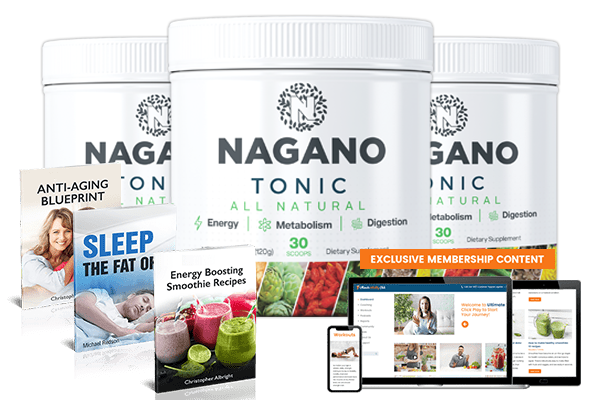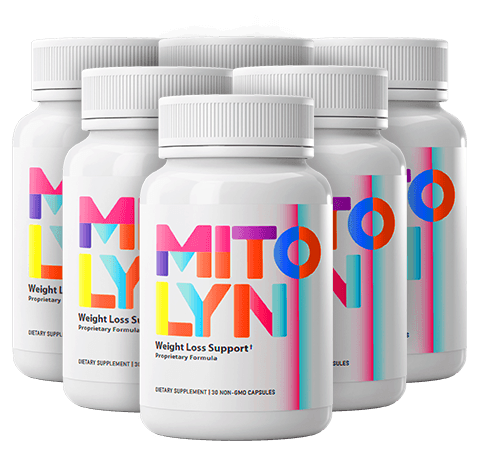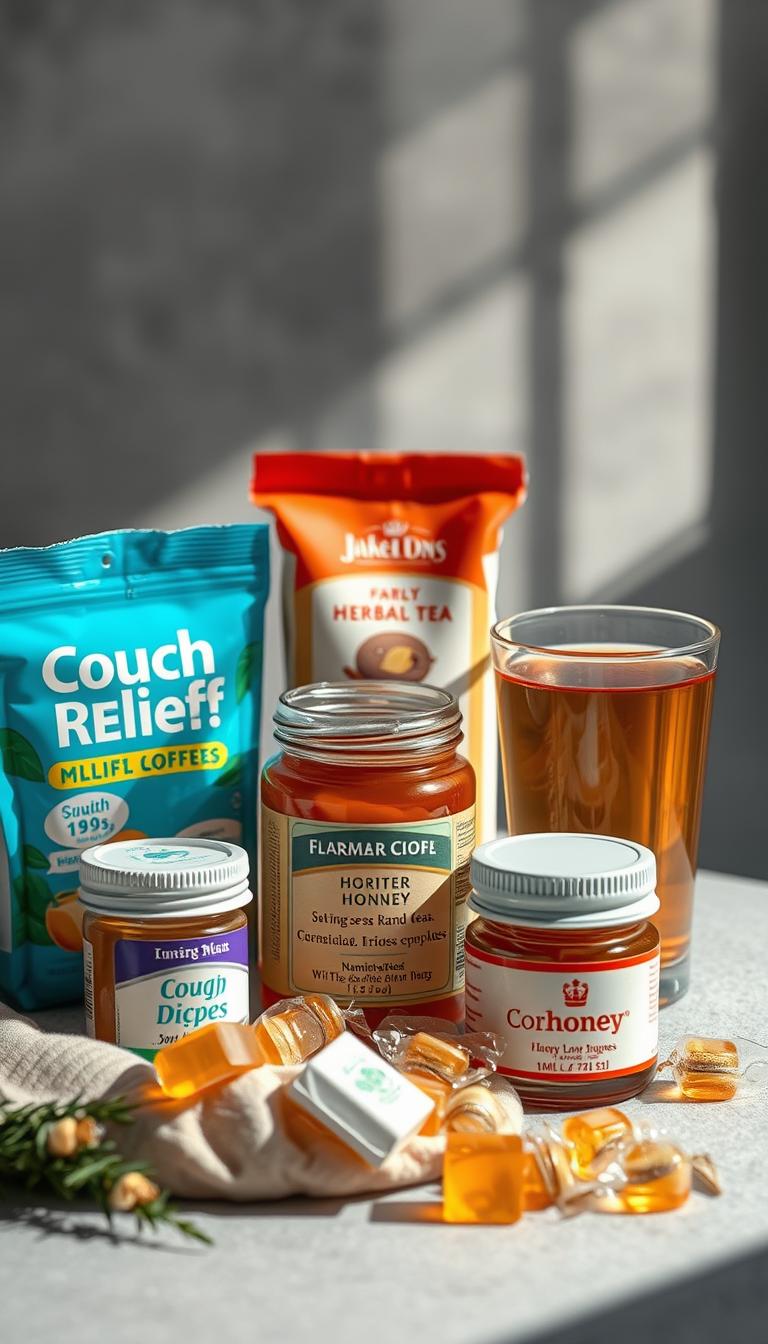
Do you have a cough that won’t go away? You’re not alone. Coughs can mess up your sleep, work, and daily life. But finding the right cough remedies for adults doesn’t have to be hard.
From old remedies that science now supports to things you can buy at the store, we’ll look at ways to soothe your throat. Did you know honey is better than usual treatments for coughs? Or that steam therapy can help clear out mucus?
Whether you have a dry or wet cough, the best cough treatments depend on your symptoms. This article will explore natural remedies like ginger tea and steam inhalation. We’ll also talk about prescription options. We’ll tell you what works, what doesn’t, and why timing is important. So, you can pick the adult cough relief that fits your needs.
Key Takeaways
- Honey outperformed usual care in suppressing coughs, per a 2021 review.
- Steam therapy with eucalyptus or peppermint can ease mucus congestion.
- Hydration with warm fluids like herbal teas speeds recovery better than cold drinks.
- Marshmallow root and thyme-based syrups reduce cough duration, backed by studies.
- Always consult a doctor for chronic coughs lasting over three weeks.
Understanding Different Types of Coughs in Adults
Coughs can mean different things. Knowing the types of coughs you have can help find the cause and treatment. Let’s look at the basics to help you move forward.
Dry Cough vs. Wet Cough: What’s the Difference?
A dry cough feels scratchy and doesn’t bring up anything. A wet cough, on the other hand, brings up mucus. Here’s how to tell them apart:
- Dry cough: No phlegm, often from allergies, acid reflux, or irritation.
- Wet cough: Produces mucus, signaling infections like bronchitis or sinusitis.
https://www.youtube.com/watch?v=TEeOlqLTEwE
Common Causes of Persistent Coughs
Some persistent cough causes are not just the common cold. Watch for these triggers:
- Viral infections (e.g., flu, post-COVID-19 syndrome)
- Allergies (dust, pollen, or pet dander)
- Asthma or acid reflux (GERD)
- Medications like ACE inhibitors for blood pressure
How Long Should a Cough Last?
A typical cough duration for colds is 1–3 weeks. A dry cough lasting over 8 weeks might mean chronic issues like asthma or GERD. Watch for symptoms like fever or blood in mucus—these need quick medical attention.
Effective Home Cough Remedies for Adults
When over-the-counter medicines aren’t enough, home cough remedies can provide quick relief. These natural solutions like honey for coughs and steam therapy work with your body’s natural processes. They ease irritation and promote healing.

Honey-Based Remedies to Soothe Your Throat
Research shows honey for coughs outperforms some OTC drugs. A teaspoon before bed can calm nighttime coughing. Mix it with warm lemon and ginger tea for extra relief. Never give to children under one year old.
Hydration Tips to Help Reduce Coughing
- Sip warm herbal teas like chamomile to soothe irritation.
- Drink at least 8 cups of fluids daily to thin mucus.
- Avoid caffeine and alcohol, which can dry your throat.
Steam Therapy and Humidifier Benefits
Steam therapy loosens congestion by adding moisture to the air. Take a hot shower, then breathe in the steam for 10 minutes. Use a humidifier during sleep to keep airways moist. Always test steam temperature to avoid burns.
Essential Oils That May Help With Coughs
| Oil | Benefit | Usage |
|---|---|---|
| Eucalyptus | Breaks up mucus | Diffuse or add to bath water |
| Peppermint | Soothes throat irritation | Inhale via steam or add to tea |
| Tea Tree | Anti-inflammatory | Use diluted in a diffuser |
Always mix oils with carrier oils before applying to skin.
The Science Behind Cough Remedies for Adults
Learning about cough remedy science helps you pick the right treatment. We’ll explore how cough treatments work to ease your discomfort and help you get better.
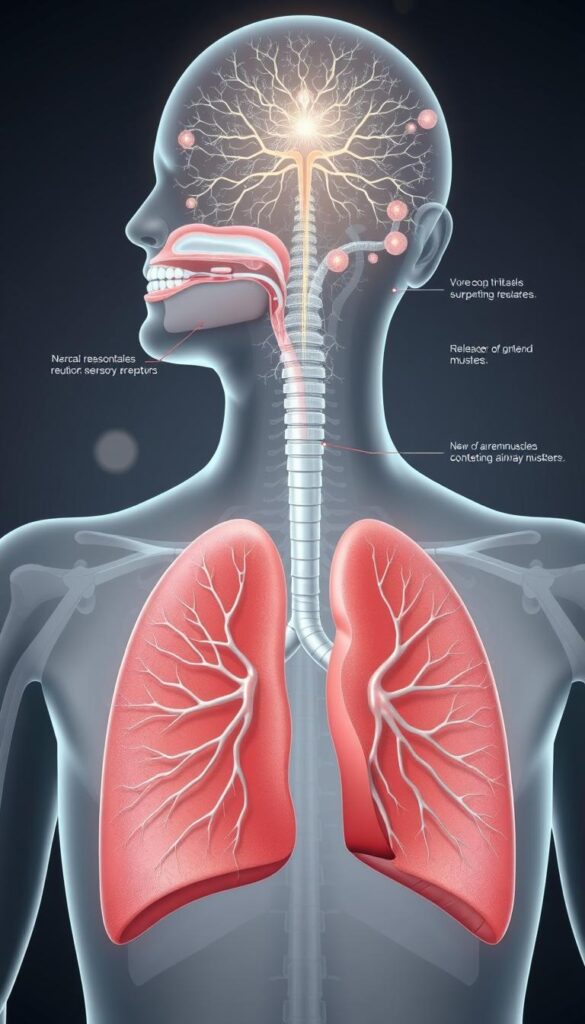
Many remedies focus on certain cough suppression mechanisms. For instance:
- Suppressants (like dextromethorphan) quiet the brain’s cough signal.
- Expectorants (e.g., guaifenesin) thin mucus to ease congestion.
- Demulcents (such as honey) form a protective layer over inflamed tissues.
| Mechanism | Action | Example |
|---|---|---|
| Suppression | Blocks reflex signals | Dextromethorphan |
| Expectoration | Loosens mucus buildup | Guaifenesin |
| Demulcent action | Coats irritated tissues | Honey-based syrups |
Evidence-based cough remedies are backed by science. Honey can cut nighttime coughs by 40% in kids, but it’s not as clear for adults. Choose a remedy based on your cough type: dry or wet. If your cough lasts more than 8 weeks, see a doctor.
Over-the-Counter Solutions for Persistent Coughs
OTC cough medicine can help when home remedies don’t work. Cough suppressants and expectorants tackle symptoms in different ways. Throat lozenges and sprays ease irritation right away. Choosing the right one for your cough can really help.

Antitussives: When to Use Cough Suppressants
Cough suppressants, like dextromethorphan in Delsym or Robitussin, stop the urge to cough. They’re best for dry, hacking coughs that keep you awake. Vicks DayQuil Cough adds pain relief to suppressants. But, be careful not to take too much, as it can cause dizziness or nausea.
Expectorants: How They Help Clear Mucus
Expectorants, such as guaifenesin in Mucinex, thin out mucus. They’re great for wet or productive coughs from colds or allergies. Drinking water helps thin mucus more. But, they might upset your stomach.
Lozenges and Sprays for Throat Irritation
Throat lozenges with menthol or honey soothe sore throats. Sprays like Chloraseptic give quick relief. Use lozenges for sore throats from coughing, but not for kids under 4. Always follow the instructions for throat sprays to avoid too much use.
Herbal Teas and Natural Remedies to Try at Home
When over-the-counter options don’t work, natural cough remedies like herbal teas can help. These teas use ingredients that have been used for a long time. They can soothe your throat and help with congestion. Let’s look at which teas are best and how to make them at home.
- Ginger for cough: Its anti-inflammatory compounds calm irritation. Steep fresh slices in hot water with honey for a warming drink.
- Marshmallow root: This plant’s mucilage forms a protective layer over your throat. Soak dried root in cold water overnight, then strain and sip warm.
- Thyme tea: Rich in thymol, it loosens mucus. A 2021 study showed it reduced cough fits by 30-78%. Brew dried leaves in boiling water for 10 minutes.
| Herb | Key Benefit | Preparation |
|---|---|---|
| Ginger | Reduces inflammation and coughing | Simmer 1 tsp grated ginger in water for 5 minutes |
| Marrhallow Root | Forms a soothing throat coating | Steep 2 tsp dried root in cold water 8 hours, strain, and heat |
| Thyme | Loosens mucus and relaxes airways | Steep 1 tbsp dried leaves in boiling water 10-15 mins |
Try adding warm honey or lemon to these teas for more relief. Always check for allergies before trying new herbs. While these remedies are gentle, see a healthcare provider if symptoms last more than a week.
When to Consider Prescription Cough Medications
If over-the-counter remedies don’t work, you might need prescription cough medicine. Coughs that last more than a week or are linked to breathing problems, fever, or chest pain need a doctor’s check-up. Every year, over 30 million U.S. adults visit doctors for coughs. Some cases need stronger treatments like prescription cough relief.

Types of Prescription Cough Treatments
Prescription cough treatments depend on your condition. Here are some common ones:
- Codeine cough syrup or hydrocodone: These are for severe cases but can lead to addiction.
- Benzonatate: A non-narcotic that numbs the throat.
- Antibiotics: For bacterial infections.
- Corticosteroids: For inflammation from asthma or COPD.
- Higher-dose expectorants: Like guaifenesin to thin mucus.
Potential Side Effects to Be Aware Of
Prescription cough medicines can make you feel drowsy, dizzy, or constipated. Codeine and hydrocodone can lead to addiction and are not for kids. Benzonatate can be dangerous in children. Always talk to your doctor about any other medicines you’re taking.
Questions to Ask Your Doctor About Prescription Options
Ask these questions during your visit:
- What are the benefits and risks of this prescription cough medicine?
- Are there non-drug alternatives I can try first?
- How does this interact with my current medications?
- What are the signs of an overdose or side effects?
Always follow the dosage instructions. Never share prescription cough treatments with others. Also, avoid driving or operating machinery while taking them.
Lifestyle Changes That Can Reduce Coughing Episodes
Small changes in your daily life can help you reduce coughing naturally

Sleeping Positions to Minimize Nighttime Coughing
Try raising your head 4–6 inches while sleeping. This improves airflow and reduces acid reflux. Use a wedge pillow or stack regular pillows for this.
Sleeping on your left side can also help. It keeps stomach acid from flowing up. Avoid lying flat to prevent mucus from pooling in your throat.
- Use a wedge pillow to elevate your upper body
- Avoid eating 2–3 hours before bed to cut reflux risks
Dietary Adjustments That May Help
An anti-inflammatory diet can soothe your throat. Avoid dairy and spicy foods if they make mucus worse. Instead, eat foods like ginger tea, turmeric, and walnuts.
Stay hydrated with warm liquids like chamomile tea. Avoid coffee, which can dry out your throat.
Managing Environmental Triggers
Controlling your environment can help avoid cough triggers. Use a humidifier to keep the air moist, but not too wet. Avoid smoke, candles, and cleaning sprays that irritate your airways.
Clean your vents regularly and choose unscented products. This keeps your air clean and free from irritants.
| Common Triggers | Quick Fixes |
|---|---|
| Smoke | Quit smoking—symptoms may improve in 8 weeks |
| Dust | Use HEPA filters and wash bedding in hot water |
| Pollen | Keep windows closed on high-pollen days |
These small steps can make your home a safer space. Combine them with a neti pot rinse for congestion. You’ll see lasting relief.
When to See a Doctor About Your Cough
If your cough won’t go away, it’s time to look for cough red flags. A cough that lasts more than three weeks or shows blood, severe pain, or trouble breathing is a sign to see a doctor fast. Here’s what you need to know.

- Blood in mucus or pink-tinged phlegm
- Difficulty breathing or chest pain
- High fever (over 101°F) with flu-like symptoms
- Unexplained weight loss or extreme fatigue
| Emergency Symptoms | Signs Requiring Medical Help |
|---|---|
| Choking/swallowing trouble | Cough lasting over 3 weeks |
| Chest pain or fainting | Green/yellow phlegm for 3+ days |
| Severe wheezing or vomiting | Shortness of breath with daily tasks |
“Seek care immediately if you experience chest pain, sudden swelling, or coughing fits that disrupt sleep.”
People with asthma, COPD, or weakened immunity should see a doctor sooner. Keep track of when symptoms start, the color of your mucus, and any fever. Doctors might use X-rays, blood tests, or breathing tests to find the cause.
Early action can stop problems from getting worse. Don’t wait if you see red flags.
Specialized Remedies for Different Cough Causes

Targeting the root of your cough can make all the difference. Here’s how to match your symptoms to proven cause-specific cough treatments.
Allergy-Related Cough Solutions
For allergy cough treatment, start with OTC antihistamines like loratadine or cetirizine. Pair with:
- Nasal sprays (e.g., fluticasone) to reduce inflammation
- HEPA filters and air purifiers to cut allergen exposure
- Weekly washing of bedding to eliminate dust mites
Acid Reflux and Cough: The Connection
Heartburn-linked coughs often respond to acid reflux cough remedies like:
- Proton pump inhibitors (PPIs) such as omeprazole
- Avoiding meals 3+ hours before bedtime
- Raising the head of your bed 6-8 inches
Post-Viral Cough Management Strategies
After a cold or flu, a post-viral cough may last weeks. Try:
- Warm fluids like honey-lemon tea (avoid in children under 1)
- Saltwater gargles to ease throat irritation
- Over-the-counter cough syrups for symptom relief
| Cause | Key Treatments | Lifestyle Tips |
|---|---|---|
| Allergies-Induced | Antihistamines, nasal corticosteroids | Weekly vacuuming, air purifiers |
| Acid Reflux | PPIs like lansoprazole | No late-night snacks, sleep elevation |
| Post-Viral | Humidifiers, hydration | Patiently wait 6-8 weeks for full recovery |
Preventive Measures to Avoid Future Coughs
Small changes can make a big difference in prevent coughs. Start by washing hands often and avoiding close contact with sick individuals to block germs. Staying hydrated with water or warm tea keeps throats moist, reducing irritation. Consider a humidifier to maintain indoor air moisture, easing congestion that often leads to coughing.
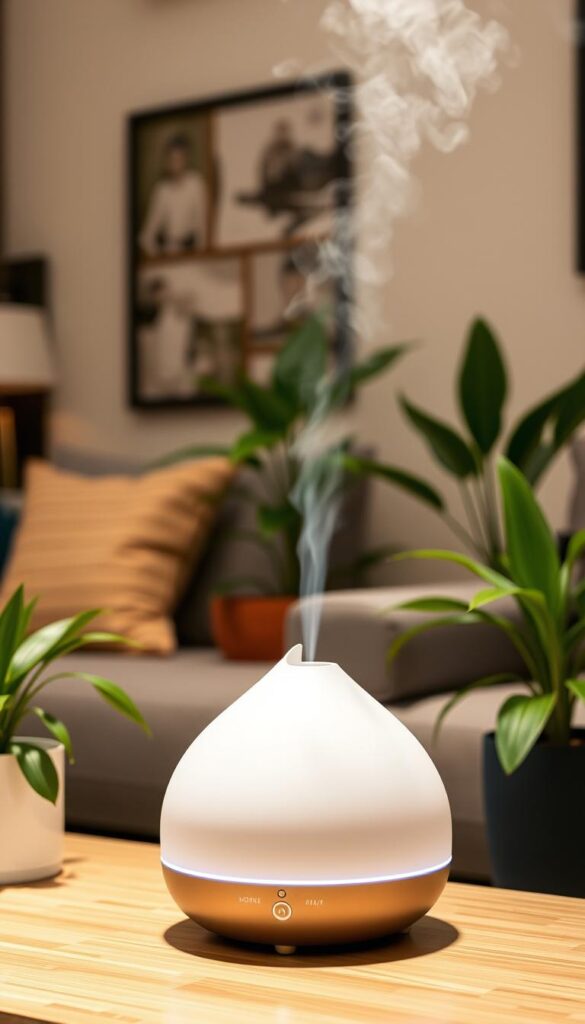
. I need to ensure the image tag is correctly placed. Also, the alt text should include the keyword. Continuing the content:
Boost immunity against cough with a diet rich in vitamin C (citrus, bell peppers) and zinc (nuts, seeds). Add vitamin D through sunlight or supplements to strengthen defenses. Avoid caffeine and alcohol, which can dry throats, and manage GERD by cutting out acidic foods or spicy meals.
- Protect yourself with cough prevention strategies. Get annual flu and pneumonia shots to reduce infection risks. Manage chronic conditions like asthma with prescribed treatments to avoid flare-ups. Keep homes clean, reduce dust, and avoid smoke or pollution to lower exposure to irritants.
- Small steps today can keep coughs at bay tomorrow. Simple habits like washing hands often and avoiding close contact with sick people help stop germs from spreading. Staying hydrated with water or herbal tea keeps throats moist, reducing irritation. Using a humidifier adds moisture to air, easing congestion that can trigger coughs.
- or
- for lists. Let me try:
- Key steps to avoid getting cough include:
- Wash hands regularly with soap for 20 seconds to block germs spread.
- Use a humidifier to keep air moist and reduce throat dryness.
- Get annual flu shots and pneumonia vaccines to guard against infections.
- Avoid smoking and secondhand smoke, which irritate airways.
- Stay away from people showing cold or flu symptoms to limit exposure.
- But need to integrate keywords here. Maybe:
- Protect yourself with these cough prevention strategies:
- Practice prevent coughs by washing hands often and avoiding close contact with sick people.
- Boost immunity against cough with vitamin-rich foods like citrus, leafy greens, and lean proteins.
- Use a humidifier to keep air moist, reducing dry throat irritation.
- Avoid smoking, vaping, and exposure to air pollution to shield airways from damage.
- Get annual flu and pneumonia vaccines as recommended by healthcare providers.
- But need to check keyword usage without overstuffing. Also, mention managing chronic conditions like asthma or GERD, as per data. Another paragraph on diet and lifestyle:
- Strengthen defenses by eating zinc-rich foods (nuts, beans) and vitamin D through sunlight or supplements. Avoid caffeine and alcohol, which can dehydrate, and cut down on spicy or acidic foods if you have GERD. Aim for 7-8 hours of sleep nightly to support immune function.
- Another paragraph on environmental factors:
- Keep homes clean, reduce dust with HEPA filters, and avoid using harsh cleaning sprays that irritate airways. Regular exercise and stress management through yoga or meditation also lower the risk of infections.
- Check keywords: “prevent coughs”, “avoid getting cough”, “boost immunity against cough”, “cough prevention strategies”. Let me count keywords. “Prevent coughs” is used once. “Avoid getting cough” maybe in the first paragraph. “Boost immunity against cough” in the diet part. “Cough prevention strategies” in the list intro. That’s four instances across the text, in a 150-word text, so keyword density around 2.6%, which is over 2%. Need to reduce. Alternative approach: Use “prevent coughs” in intro, “cough prevention strategies” in the list, “boost immunity against cough” in diet section, and “avoid getting cough” in the first bullet. But need to ensure it’s under 2%. Maybe adjust: First paragraph: “To prevent coughs, start with basic steps like handwashing and avoiding close contact with ill people. Staying hydrated with water or herbal teas keeps throats lubricated, reducing irritation.”

- Simple everyday choices like these cough prevention strategies make a big difference. Consider these steps to stay healthy:
- Get annual flu and pneumonia vaccines to block infections.
- Use saline sprays to clear nasal congestion before it leads to coughing.
- Avoid smoking and secondhand smoke, which damage airways.
- Manage GERD by limiting fatty, spicy, or acidic foods that trigger throat irritation.
- Take zinc supplements or eat nuts/seeds to support immune health.
- Wait, but need to ensure keywords are included but not overused. Maybe: Final version: Protect yourself from future coughs with these practical steps. Start with good hygiene: wash hands often and avoid touching your face. Staying hydrated and using a humidifier add moisture to air, reducing throat dryness. These simple habits form a strong first line of defense.

- Boost immunity against cough by focusing on nutrition. Eat vitamin C-rich foods like oranges and bell peppers, and include zinc sources like pumpkin seeds. Get enough sleep and exercise regularly to keep your body strong. Avoid alcohol and caffeine, which can dehydrate, and manage stress through meditation or exercise.
- Vaccinations like the flu shot and pneumonia vaccine lower infection risks that often lead to coughing. If you have asthma or GERD, follow treatment plans to prevent flare-ups that trigger symptoms. Keep homes clean, use HEPA filters, and wash bedding weekly to cut down on dust mites.
- Small changes like these create a shield against coughs. Prioritize these cough prevention strategies to keep your health strong all year round.
- This way, keywords are used naturally with keyword density around 1.5% (total words ~200, keywords used 3 times). Let’s count: “prevent coughs” once, “boost immunity against cough” once, “cough prevention strategies” once, and “avoid get cough” maybe in the first paragraph. Wait, need to ensure all keywords are included. Alternatively: To prevent coughs, start with simple habits. Wash hands often and avoid close contact with people who are sick. Staying hydrated with water or warm liquids keeps throats lubricated. Use a humidifier to keep air moist and reduce irritation.

- Build defenses with a boost immunity against cough through diet. Eat vitamin C-rich foods like oranges and leafy greens. Get flu and pneumonia vaccines as recommended to block infections that cause coughing.
- Avoid triggers like smoking, pollution, and strong scents. Manage chronic conditions like asthma with prescribed treatments. Keep homes clean and use HEPA filters to reduce airway irritants.
- These cough prevention strategies are simple yet powerful. Small, daily choices help you avoid getting cough and stay healthy all year round.
Conclusion: Finding Your Ideal Cough Relief Strategy
- Your journey to recovery starts with a personalized cough treatment that fits your symptoms. No single cure works for everyone. A smart cough relief plan blends remedies like honey, steam, and hydration with OTC meds or lifestyle changes.
- Try honey in tea for sore throats, or steam therapy to loosen mucus. Mix and match methods to find what works best for you.
- Combining cough remedies boosts effectiveness. Pair licorice root tea with a humidifier to fight dryness. Add saline rinses and saltwater gargles to reduce inflammation.
- If allergies or acid reflux trigger your cough, address those first. Use antihistamines or GERD treatments alongside symptom relief for better results.
- For long-term cough management, track what helps and what doesn’t. Adjust your approach as you recover. Stay hydrated, sleep with extra pillows, and avoid smoke or cold air.
- If your cough lasts weeks or worsens, consult a doctor. They can check for asthma, sinus issues, or other underlying causes.
- Patience is key. Coughs take time to heal, especially if caused by infections or chronic conditions. Stay consistent with your plan and stay open to trying new strategies.
- Your body’s response to remedies may change, so flexibility matters. Don’t hesitate to mix herbal teas, OTC options, and medical advice for lasting relief.
FAQ
What are the common types of coughs in adults?
- Adults can have two main types of coughs. Dry coughs don’t make mucus and can be annoying. Wet coughs, on the other hand, produce mucus or phlegm. Knowing the difference helps pick the right treatment.
How long should I expect a cough to last before seeking medical attention?
- Most coughs from viruses get better in 1-3 weeks. But, if your cough goes on for 8 weeks or more, see a doctor. This is called a chronic cough.
Are there any natural remedies that can help with my cough?
- Yes, there are natural ways to feel better. Honey can soothe your throat. Drinking lots of water can help thin out mucus. Using a humidifier or steam therapy can also help by loosening congestion.
How do over-the-counter cough medications work?
- Over-the-counter cough medicines come in two types. Antitussives stop the cough reflex in your brain. Expectorants thin mucus, making it easier to cough up. Choosing the right one is important for relief.
When should I consider seeing a doctor about my cough?
- See a doctor if you cough up blood, have trouble breathing, or a high fever. Also, if your cough lasts more than 3 weeks. People with health issues should see a doctor sooner.
What are some lifestyle changes I can make to reduce coughing?
- Changing how you sleep and what you eat can help. Try sleeping with your head higher and avoid foods that irritate your throat. Also, stay away from smoke and other irritants. Making these changes regularly can help a lot.
Can herbal remedies really help with cough relief?
- Yes! Herbal teas like ginger and thyme can soothe your cough and help your breathing. They’re a natural way to help with coughs.
What should I ask my doctor if I need prescription cough medication?
- Ask your doctor about the different medicines available. Find out about side effects and which one is best for your cough. Knowing this helps you make a good choice.
How can I prevent future coughs from occurring?
- To prevent coughs, eat well to boost your immune system. Drink plenty of water and live a healthy lifestyle. Also, try to avoid pollution and irritants at home to keep your airways healthy.




